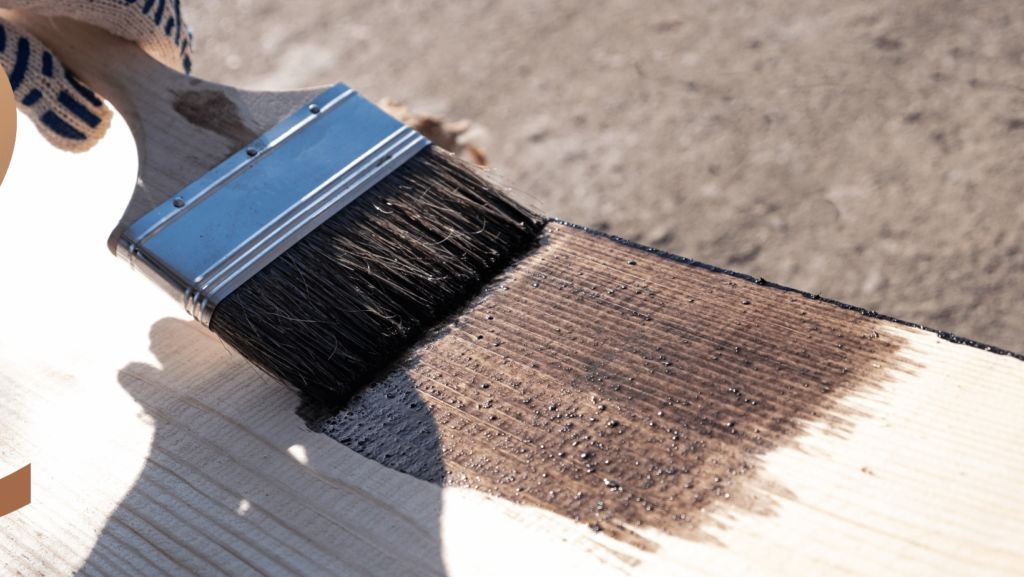Timber oil is an oil-based finish product that is used to manage wooden products to improve their quality. Originating from natural sources such as tung, linseed, and soybean oils, timber oil soaks into the wood grain. It enhances its luxurious look while offering protection. It has become common knowledge that timber oils have been embraced widely by woodworkers and homeowners due to the following advantages.
Moisture and Decay Resistant
– Waterproofing Properties: Another significant factor that is destructive to wood is water, leading to rotting, formation of mold, and weakness in the structure over a while. Timber oils harbor unique properties of water repellency that form a protective shield against penetrating moisture. This helps in avoiding the formation of wares, cracks, or fungus on the wood.
– Restricts Water Penetration: When timber oil is applied, it penetrates the surface of the wood, thus restraining the pores and sealing the capillaries of cellularity. This significantly minimizes the level of water absorption into the wood, thereby increasing the likelihood of the timber failing structurally.

Advantages: Refines the Natural Tone of Wood
– Brings Out the Grain: Timber oil allows the surface of the wood to considerably pop and shine because it goes deep into the grain. It deepens the natural grain and personality of the wood to give it a more pronounced appearance.
– Rich Warm Tones: It is also possible to create deeper wood tones using unique pigments in timber oil. This helps the original natural color of the wood to be seen while at the same time giving the wood a warmer and richer color shade. The outcome, therefore, is a visually dynamic and highly contrasting grain effect.
Easy Application and Maintenance
– User-Friendly Application: Timber oils do not need to be applied at any great thickness; this makes them suitable even for do-it-yourself people. In comparison with the lacquers or varnishes, for applying timber oil there is no need to possess any particular skills: this product can be applied smoothly even with the help of a brush or cloth.
– Does Not Peel or Chip: As the penetrating sealer, the timber oil has an innate ability to penetrate the cells of the timber. This leads to a long-lasting and cohesive barrier that can neither fade, split, or flake, as it might be seen with other aged or worn products.
– Simple Renewal Coats: Most timber oil finishes are easy to maintain, making them suitable for use in most facilities. It only requires light sanding and then refilling with timber oil to retain the natural beauty of the wood repeatedly.
Eco-Friendly and Non-Toxic
– Derived From Natural Oils: Pure timber oils combine plant oils like tung, soybean, and linseed oils with other natural ingredients. This makes most timber oil products non-hazardous, which means they are environmentally friendly.
– Low VOCs: Timber oils do not emit any VOCs as compared to varnishes and paints thereby making them environmentally friendly. The emission visible in the form of fumes is not at all detrimental to human health.
– Easily Biodegradable: Due to its plant origin, timber oil does not remain in the environment to last long, particularly in its pure form. It is not at all difficult for the microorganisms that live in the soil to degrade it into harmless by-products. This makes disposal easy and has no ecological effect on the environment.
Enhanced Durability
– Fortifies Against Elements: Timber oil protects wood from possible damage due to exposure to very many environmental conditions that include light, moisture, falling water, wind, and rain, among others. It has been observed that UV rays have a terrible effect on wooden furniture as they cause discoloration of the wood and dry up the wood. There is a deterioration process that happens to the timber; the timber oil coating protects the timber from this deterioration.
– Minimizes Surface Damage: The increased protection of the timber oil helps to reduce the effect of most mild abuses such as scratching, scuffing or minor denting. Oiled wood is thin and smooth and therefore any surface abrasions that would have dented bare wood will hardly scratch oiled timber.
– Long-Lasting Finish: Indeed, timber oil goes more profound in the pores of the timber work and curing is done to offer a stronger finish contrary to surface coatings like paint or lacquer. That is why it is appropriate to classify wood as optimally oiled during the years when it retains the additional gloss solely with the help of primary care.

The factors that must be taken into consideration when applying timber oils
Hence, while timber oils have their advantages, it is essential to note and keep in mind their few disadvantages in the course of and before its application.
– Prep Work is Vital: Timber oil is most effective on he new and unstained wood products. To allow the oil to penetrate, the new surface and any old paint, stain, or lacquer layers must be sanded or stripped down to bare wood.
– Multiple Coats are Needed: To enhance the look of the timber, it is always advisable to apply a single layer of timber oil. Multiple thin coats are necessary to lay sufficient varnish to protect the wood adequately, with light sanding between each layer.
– Can Feel Oily Initially: Timber oil could take a few weeks to penetrate and dry off thoroughly; therefore, the wood feels somewhat oily after applying it. This surface oiliness does not linger; it gradually goes away.
– Color Tones May Shift: It should be also noted that some woods when initially covered with oil may get much darker as the oil cures during the first weeks. The final tone of the wooden item may be completely different from that of the fresh applying oil shade.
Conclusion
High in mildew resistance, protection against UV damage, and improving looks, timber oil is a functional coating product for interior and exterior woodworking. As a dining table finish or for use on wooden decks and fences, timber oil strengthens the timber and enhances its inherent richness. As long as you take your time when applying the paint and are diligent about maintaining the finish, it should be fine. As such, your oiled wood will always have that rich beauty for as long as you regularly do this simple care.